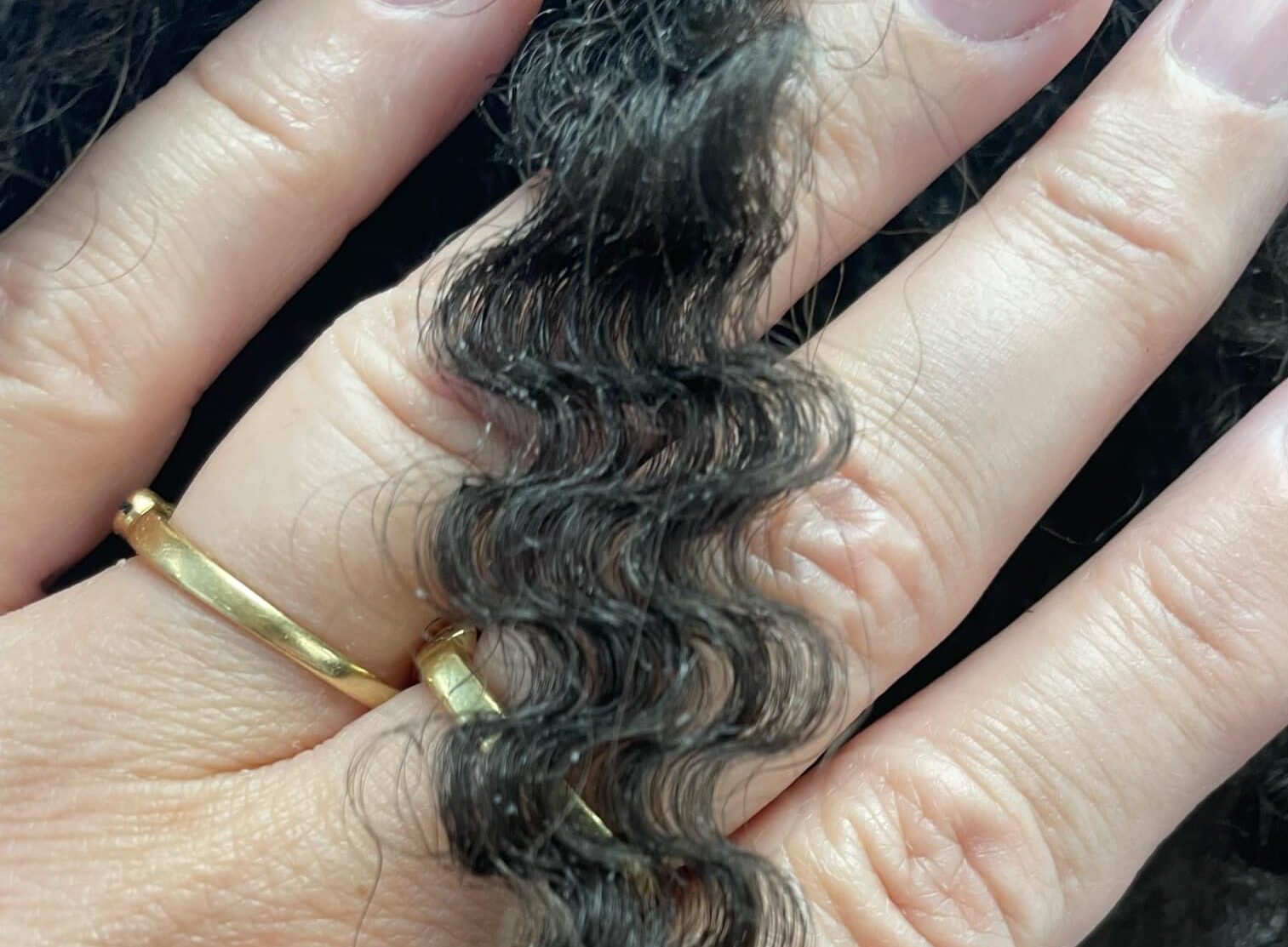Despite what the inter webs tell you, coconut oil and curls don’t always mix. Some of the driest hair I have ever seen was due to the use of raw coconut oil. This “natural” product is available in organic form at any better grocery store and is a miracle worker on dry skin. We gargle with it, cook with it, brush our teeth with it. If coconut oil nourishes our body, it must be just as miraculous on our curls, right? Nope. Just nope. And here’s why.
Porosity Is A Puzzle with Coconut Oil and Curls
Do you have low porosity or high porosity curls? Do you even know the porosity of your hair? (If not, talk to your stylist!) Porosity matters! Tight curly and coily hair, straight hair and fine hair can all be low porosity.
One reason the coconut oil and curls combo can cause dryness is due to your hair’s porosity. Think of hair cuticles like puzzle pieces. Coconut oil can work great on high porosity hair, as the “puzzle pieces” are looser, so water and moisturizing products can enter and exit the hair shaft. But low porosity hair is just the opposite. Tightly packed puzzle pieces mean water and hydrating elements like coconut oil or other products have a difficult time getting in. When the hair shaft is impenetrable, coconut oil has nowhere to go. It then sits on the surface of the hair, completely useless to what you were hoping it would do: add hydration.
Coconut Oil and Curls Can Cause Buildup
In low porosity hair, those puzzle pieces are tight. Coconut oil can’t get in there to do what you think it should do, and that’s moisturize your curls like it moisturizes your skin. So what happens? Coconut oil gathers on the hair shaft, leaving hair feeling greasy and oily. This buildup essentially suffocates the hair shaft.
Without water and hydration, those nourishing elements hair needs, curls can turn dry, brittle and break. In the end, that raw, natural and “healthy” ingredient is just as harmful to your curls as silicone and sulfate-loaded products, which also cause buildup. This is why we ask our new clients to stop using oils and butters on their hair two weeks before coming in for their first appointment! Our friends at Original Moxie have a great blog on busting the buildup blues, by the way.
Too Much Protein is a Thing
Another reason coconut oil and curls aren’t always compatible is protein. Coconut oil is super high in protein, posing another challenge to low porosity hair, which is often protein-sensitive. This type of protein overload can also lead to brittle, stiff, straw-like hair, dead ends and breakage.
We Love You Coconut Oil, But…
Coconut oil can be amazing for some hair types. Full of fatty acids, it can soften, strengthen and hydrate hair. And yes, a good container of organic coconut oil can cost less than a bottle of conditioner. The internet is full of “coconut oil and curls” posts, and “how do I use coconut oil on my curls” blogs. Warm it, pack it, overnight it, mix it… it’s all there. But it’s there for clicks.
I’m not here for clicks. I’m here after decades behind the chair. I love coconut oil, and yes, it can be great, and even affordable occasional nourishment for some types of curls. But used incorrectly, or used excessively on low porosity hair, coconut oil and curls can cause damage and dryness. Talk to your stylist. Make sure you know your curl type, texture and porosity, and how they all factor into your specific type of curl. Maybe coconut oil isn’t for you. And that’s okay, there are plenty of organic and better-for-your curls products that are miracle workers.

